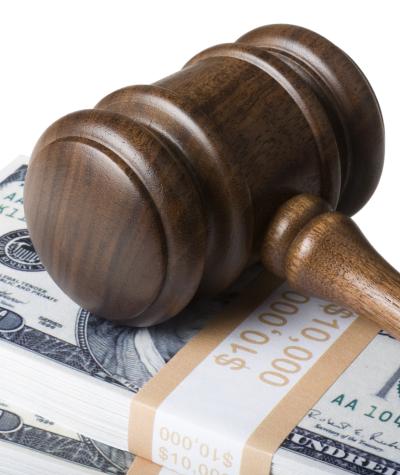Over the past decade, the Federal Election Commission (FEC) has developed a well-deserved reputation for dysfunction. It has deadlocked on more and more enforcement matters, stood idly by while hundreds of millions of dollars in dark money have flooded our elections, and failed to take even basic steps to update campaign finance law for the 21st century. In many areas of the law, FEC inaction has signaled to political operatives that they can push the legal envelope and get away with it.
But there are at least two areas in which the fear of FEC action appears still to carry some weight: illegal straw donor schemes and illegal contractor contributions. We have seen this play out repeatedly in the last few months alone, when CLC’s complaints on these issues have caused $760,000 in illegal contributions to be refunded or reattributed.
The so-called straw donor ban says that making a political contribution in the name of someone else is illegal. And in the post-Citizens United era, this has been put to the test more than ever, with wealthy donors using shell corporations to anonymously launder large contributions to super PACs . Although the FEC has deadlocked on this issue in the past, it has recently claimed that it will open an investigation when an LLC with no public footprint and no independent sources of revenue makes a political contribution shortly after formation.
In August, CLC filed a complaint against two LLCs matching that exact fact pattern. Apparent shell corporations Highway 76 LLC and Blue Magnolia Investments LLC both gave six-figure sums to the super PAC DefendArizona only five weeks after incorporating in Delaware. Neither showed any sign of having generated enough, if any, legitimate business income to fund six-figure contributions. They didn’t even have websites. Shortly after our complaint, DefendArizona fully refunded Highway 76 LLC’s $100,000 contribution and reattributed Blue Magnolia Investment LLC’s $100,000 contribution to an individual: Berkshire Hathaway Automotive CEO Larry Van Tuyl, whose association with that LLC was not public until the reattribution.
For its part, the ban on federal contractors making political contributors, which has been in effect for 75 years, protects against quid pro quo corruption in one of its most rudimentary forms: corporations buying taxpayer-funded contracts with political contributions, and, vice versa, politicians rewarding political contributors with lucrative contracts. Even the FEC has recognized this: following a 2016 complaint from CLC, for example, it fined contractor Suffolk Construction Company for illegally contributing $200,000 to the Democratic super PAC Priorities USA Action. The FEC imposed this fine despite the fact that Priorities USA Action had refunded the $200,000.
CLC’s three 2018 complaints alleging violations of this contractor contribution ban, also all filed in August, have each prompted full refunds or reattributions:
- Our complaint against Ring Power Corporation, a long-time contractor, for giving $50,000 to New Republican PAC, the super PAC supporting Rick Scott’s U.S. Senate run in Florida, prompted the super PAC to issue a full refund of the contribution two weeks later.
- Three weeks after we filed a complaint alleging that Ashbritt, Inc. violated the contractor contribution ban when it gave pro-Trump super PAC America First Action $500,000, placing it in the super PAC’s top 10 donors at the time, America First Action reattributed Ashbritt’s contribution to the company’s CEO, Randy Perkins.
- Just hours after we filed a complaint against Michigan-based company and federal contractor Haworth, Inc. for contributing $10,000 to Outsider PAC, Outsider PAC and Haworth announced that the contribution would be refunded. Outsider PAC, a super PAC supporting U.S. Senate candidate John James in Michigan, then disclosed this refund on its next FEC report.
FEC staff review super PAC reports to verify that numbers are properly tabulated and documents are filed on time, but the FEC does not routinely check whether a contributor receives federal contracts or whether an LLC might be a shell corporation.
It falls on groups like CLC to identify violations of the law—and its falls on the FEC to enforce it. It is still important that the FEC penalizes those donors and super PACs that violate the law, even if they try to remedy the violation after being caught. In the absence of stiff civil penalties, political donors and operatives can write off fines or reattributions as a minor cost of doing business.
In those areas where the FEC has signaled that it will take the law seriously, a bit of sunlight can go a long way.
